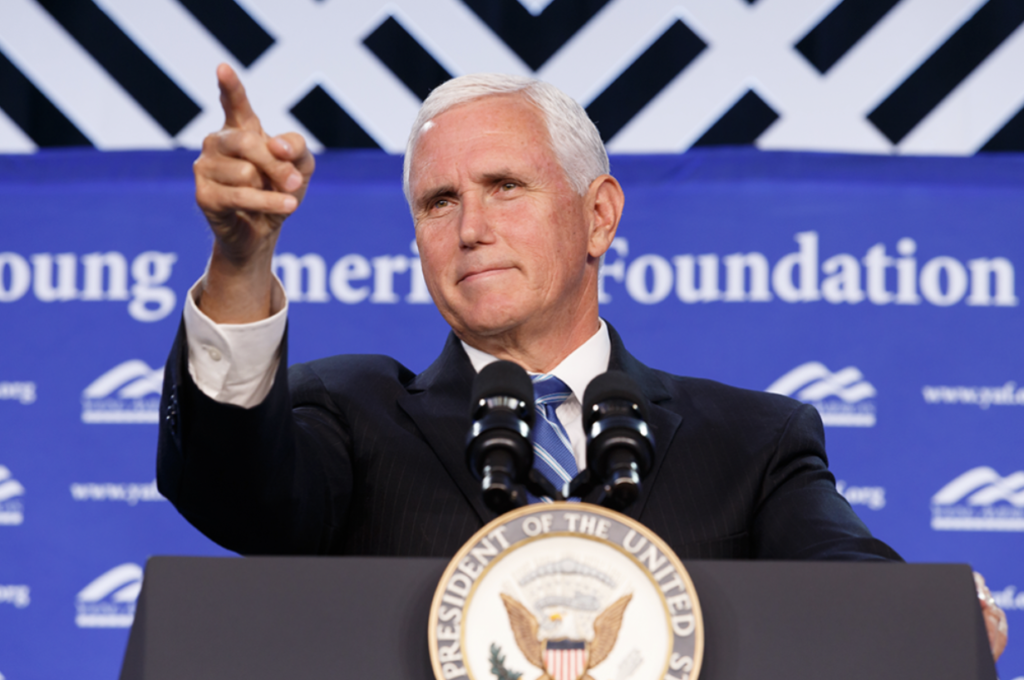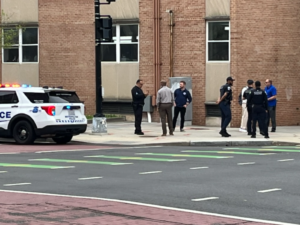Former Vice President Mike Pence Visits CUA

Image Courtesy of YAF
By Neil D’Attelo
On Tuesday, November 29th, former Vice President Mike Pence came to speak at Catholic University, an event hosted by the University’s chapter of Young America’s Foundation (YAF). The Great Rooms were packed to capacity as students, faculty, and guests listened to a fantastic discussion about Pence’s vision for the future of America, and how the students of this country will impact that future. Pence discussed his experience in politics as he served in the House of Representatives for several years and later as governor of Indiana before being chosen to be Donald Trump’s vice president. Pence told the crowd about how his political journey had originally begun on the other side of the aisle, as he identified mostly with Democratic ideals throughout most of high school and college, but that his worldview became more conservative during the Reagan administration.
As a man of deep faith, Vice President Pence also talked about his Catholic upbringing, and how that impacted his life going forward. He admitted that during his high school and early college years, he had strayed from his faith a bit and believed he could simply handle the world on his own, a stage many college students go through. Although, during his later college experience, he knew that something was missing from his life and his heart, and turned back to Jesus Christ, this time as an Evangelical Christian. Pence urged the crowd to remain close to God in everything that they do, and how impactful it was for him that he did so, even going as far as to name his recently published memoir “So Help Me God”. Pence is possibly gearing up for a 2024 presidential campaign, with candidates such as his former campaign partner Donald Trump, and Florida governor Ron Desantis running as well, the Republican Party is looking at all its options.
Towards the end of the event, guests had the opportunity to ask the former Vice President questions on varying topics, ranging from personal experiences such as his faith journey, to political topics like the constitutionality of the 2020 elections. As many politicians do, he answered the questions in an effort to be as least inflammatory as possible, while still providing an answer that speaks to what he thinks.








